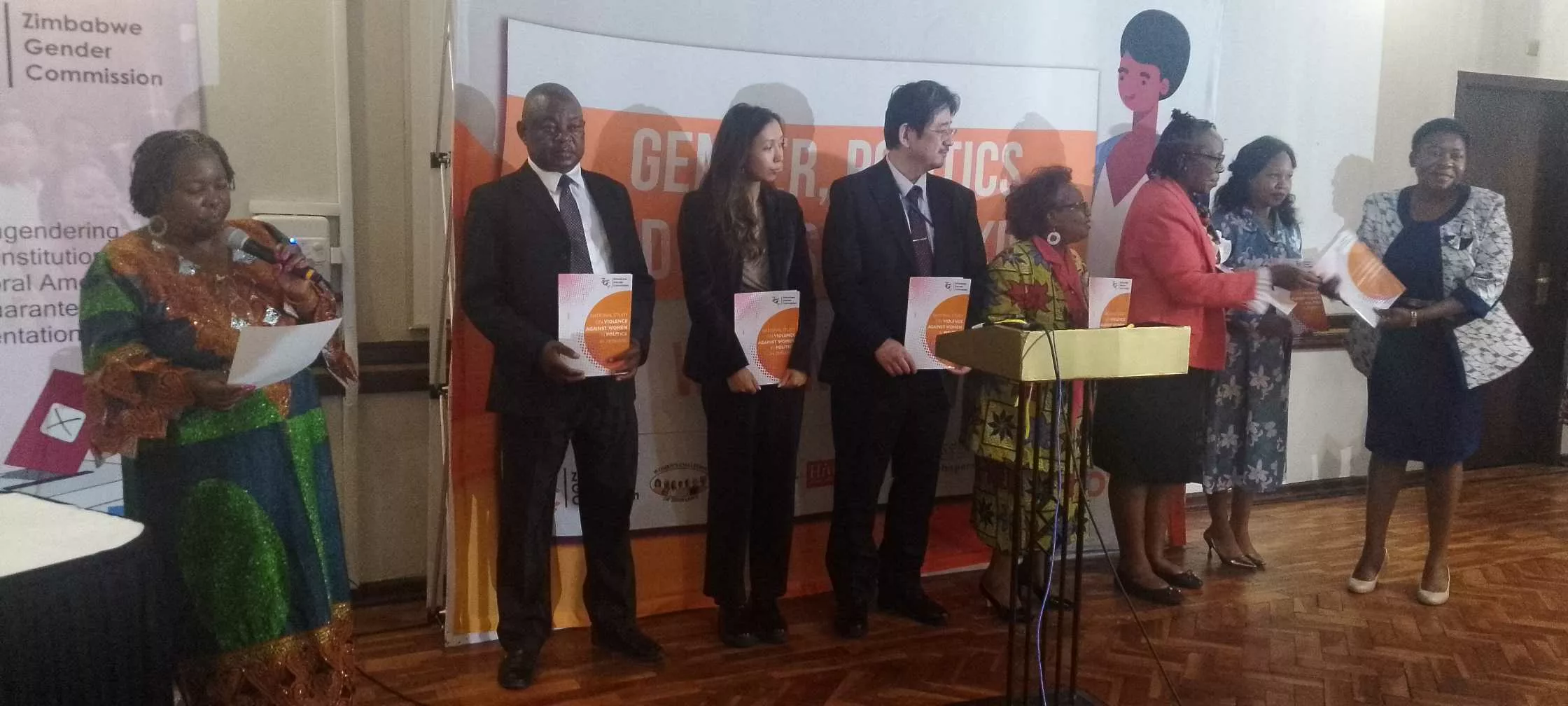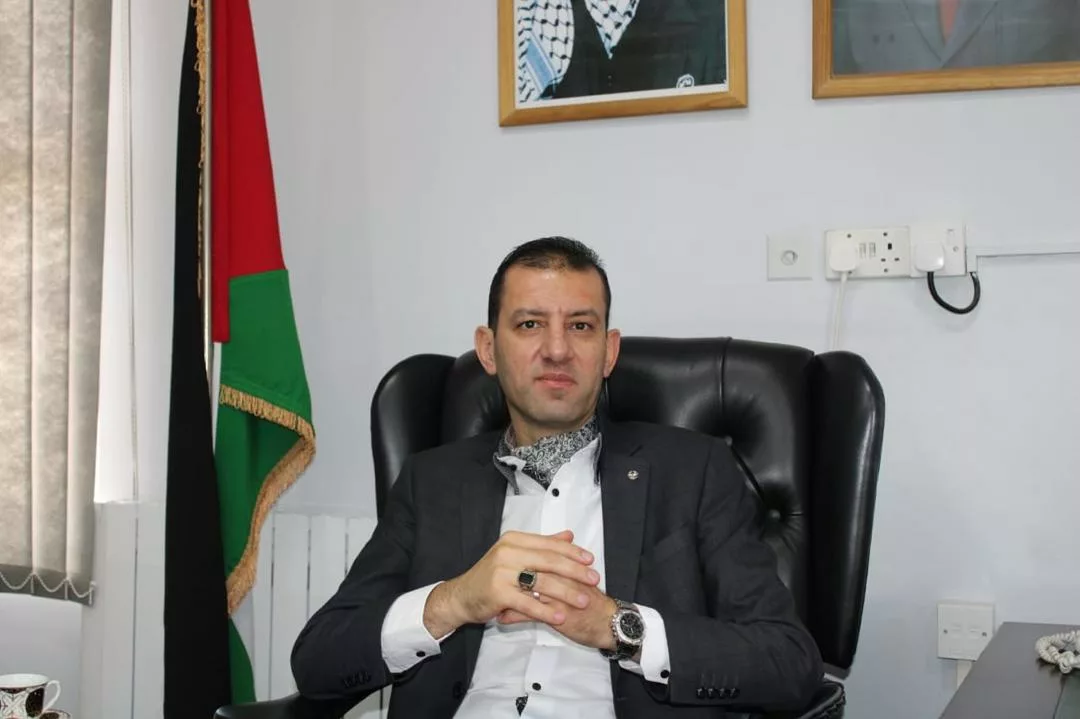|
Getting your Trinity Audio player ready...
|
The National Study on Violence Against Women in Politics has shown that addressing the vice is a step forward in stakeholders’ collective efforts to create a more inclusive and equitable political landscape.
This emerged today during the launch of the National Study on Violence Against Women in Politics at the Rainbow Towers Hotel in Harare. The launch of the report follows the commemorations of the 16 Days of Activism against Gender-Based Violence. The launch therefore symbolically highlights the importance of expanding the scope of the GBV prevention and response mechanisms to also include violence against women in politics and cultivate an environment of zero tolerance to all forms of Gender-Based Violence
“There are several good objectives of the study among which is the need to strengthen the evidence-based policy on women’s political participation, and experiences, and address obstacles like violence against women in politics. The study is meant to contribute to the development of a global model for measuring and monitoring violence against women in politics.
“It is also meant to identify entry points and provide recommendations for strengthening the monitoring, prevention, and response to violence against women in politics in Zimbabwe. We are gathered here today to unveil crucial research findings that will shed light on the extensive nature of violence faced by women in our political sphere. This study is a significant step forward in our collective efforts to create a more inclusive and equitable political landscape,” said Virginia Muwanigwa, the Chief Executive Officer of the Zimbabwe Gender Commission (ZGC), who was representing the Commission’s Chairperson of the Research and Programming Committee, Dr. N. M Nyagulu.
Muwanigwa said the findings of the study will equip stakeholders with critical data and insights necessary for shaping policy interventions and advocacy efforts to tackle the root causes of violence against women in politics.
“With this information, we can significantly contribute to creating a gender-inclusive political landscape in Zimbabwe, ensuring that the voices of women are not only heard but respected in every sphere of decision-making. I want to emphasize that this study is not merely an end in itself, it is a means to an end. The true impact of this study will be measured by the effectiveness of implementing its recommendations. This calls for the unwavering commitment, and effective participation, of all stakeholders, present here today.”
A representative of the Primson Management Consultancy firm that gave a synopsis of the report on the National Study on Violence against Women said the study targeted 301 candidates, with a focus on the youth quota, the women’s quota, and the national assembly candidates.
They also had key informant interviews with key stakeholders, key institutions involved in the electoral processes, like the Zimbabwe Electoral Commission, and CSOs that are in the electoral space.
“So now looking at the findings, focusing on the prevalence of violence against women in politics during the 2023 election. We found out, or the study found out that 92.4% of candidates who participated in the survey experienced one or more forms of violence. So that’s a staggering statistic, mainly because there are many or various types of violence that women experience. Women experienced psychological violence, sexual violence, economic violence, and online violence. There are so many types of violence and the one that had the highest precedent was psychological violence, which had 89%, followed by sexual harassment, which was pegged at 58%.
“Then we had economic violence at 32%, so you can see that the statistics are quite high. And looking at the categories that I’ve mentioned, National Assembly, Senate, Women’s Quota, and Youth Quota, the highest form of violence that was perpetrated against these women, as I mentioned before, was psychological violence,” said Eve Nyemba, the Consultant.
ZGC Chairperson, Commissioner Margaret Mukahanana-Sangarwe said the Study findings as presented by the Consultant paint a disturbing picture of the reality for women in Zimbabwe’s political landscape.
“A staggering 92.40% of surveyed candidates experienced various forms of violence throughout the entire electoral cycle – from pre-election to post-election. This violence is pervasive, occurring both within and between political parties, and is perpetrated by both men and women.
“The types of violence are diverse, encompassing sexual harassment, physical assault, cyberbullying, economic coercion, vote buying, emotional and verbal abuse. Psychological violence emerged as the most prevalent form, highlighting the deep-seated emotional toll that violence against women in politics takes on women,” the ZGC Chaiperson said.
She added that the findings presented from the national study calls for a multifaceted approach to address the issue of violence against women in politics.
“No single solution can eradicate this vice. Instead, we must adopt a wide array of measures across different levels to effectively address the various forms of violence women face in the political arena, while taking into account the complex contexts in which these incidents occur.”
As part of France’s feminist diplomacy, a representative from the Embassy said their country is committed to supporting gender equality and women’s empowerment.
“This year, we have partnered with Musasa, a local NGO in Harare and Marange, to support survivors of gender-based violence in rebuilding their lives. Musasa’s work goes beyond providing immediate shelter. Through initiatives in agriculture, livestock farming, and tailoring, they are empowering women and young girls to regain independence and economic stability, breaking free from cycles of violence and poverty.
“We’ve recently enhanced these efforts through Proparco, the financial arm of the French Development Agency – AFD, by launching a series of impactful initiatives to bolster the economic empowerment of women with NMB Bank.”
The representative added that a $15 million credit facility, alongside a 5 million EURO portfolio guarantee, and a $5 million trade finance guarantee, will directly support women entrepreneurs and women-led SMEs, with a focus on the agricultural sector.
This initiative is designed to open up access to finance and create economic opportunities that allow women to thrive in sectors that are often male-dominated.
These efforts are part of the broader strategy of the EU in Zimbabwe, where gender equality and women’s empowerment are core priorities. Through a coordinated approach, France is addressing immediate challenges and working to ensure that women can participate fully in political, social, and economic life.
Fadzai Traquino, representing Aminata Fatou Lo, the UN Women’s Representative to Zimbabwe, said the launch of the report is important in taking stock of the violence against women in politics.
“As a country, we will mark the thirtieth anniversary of the Fourth World Conference on Women and the adoption of the Beijing Declaration and Platform for Action (1995), next year in 2025 as well as the tenth anniversary of the adoption of the 2030 Agenda for Sustainable Development and its Sustainable Development Goals (SDGs).
“These anniversaries not only provide an opportunity to review the progress made in advancing the gender equality agenda but also offer a platform to bolster global action towards gender equality and a gender-responsive implementation of the 2030 Agenda and other global commitments. These include those under Security Council resolution 1325 (2000) and subsequent resolutions on women, peace, and security; the Addis Ababa Action Agenda of the Third International Conference on Financing for Development (2015); the Paris Agreement on Climate Change (2015); the ongoing review of progress on the implementation of the UNFCCC Gender Action Plan; and regional commitments to promote gender equality and the rights of women and girls, among other,” she said.
In his speech, the Chargé d’Affaires ad interim at the Embassy of Japan in Zimbabwe, Mr. Hiroyuki Kumagai at the launch of the national study on violence against women in politics, welcomed the steady implementation of capacity-building activities and study aimed at reducing violence against women in elections, for the inclusive society.
“This important study, conducted in partnership with UN Women and the Zimbabwe Gender Commission, is supported by Japan’s SD1.44 million (One Million Four Hundred and Forty Thousand United States Dollars) Election Assistance to the United Nations Development Programme (UNDP) and suggests recommendations to stakeholders. We therefore commend the collaborative efforts that have led to these significant advancements.
“Japan is cooperating with Zimbabwe in the fields of infrastructure, health, education, agriculture, and building resilience in vulnerable communities, gender equality as well. Empowering women to participate fully in the economy, society, and politics is essential for societal improvement and economic prosperity. For example, through our grassroots projects, Japan has helped establish “one-stop” clinics for survivors of gender-based violence (GBV), which will offer medical, psycho-social, and legal support,” Mr Kumagai said.






